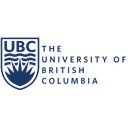Learn to integrate Indigenous perspectives and worldviews into educational practices, fostering reconciliation through culturally responsive teaching methods.
Learn to integrate Indigenous perspectives and worldviews into educational practices, fostering reconciliation through culturally responsive teaching methods.
This comprehensive course explores how to meaningfully incorporate Indigenous histories, perspectives, and worldviews into educational and professional settings. Participants learn from Indigenous Elders and educational leaders about creating inclusive learning environments that honor Indigenous knowledge. The course addresses colonial histories, current realities, and practical strategies for strengthening Indigenous-settler relations. Through engagement with Indigenous worldviews, land-based learning, and storytelling, learners develop skills to implement culturally responsive practices in classrooms and communities.
4.6
(55 ratings)
45,417 already enrolled
Instructors:
English
English
What you'll learn
Understand Indigenous histories and their impact on current educational contexts
Develop strategies for enhancing Indigenous-settler relations in educational settings
Integrate Indigenous worldviews and perspectives into teaching practices
Implement land-based and story-based learning approaches
Create culturally responsive and inclusive learning environments
Build meaningful relationships with Indigenous communities
Skills you'll gain
This course includes:
Live video
Graded assignments, exams
Access on Mobile, Tablet, Desktop
Limited Access access
Shareable certificate
Closed caption
Get a Completion Certificate
Share your certificate with prospective employers and your professional network on LinkedIn.
Created by
Provided by

Top companies offer this course to their employees
Top companies provide this course to enhance their employees' skills, ensuring they excel in handling complex projects and drive organizational success.





There are 6 modules in this course
This course provides a transformative learning experience focused on Indigenous education and reconciliation. Participants explore Indigenous histories, worldviews, and approaches to learning while developing practical strategies for creating inclusive educational environments. The curriculum covers colonial histories, Indigenous perspectives, storytelling traditions, land-based learning, and relationship-building techniques. Through engagement with Indigenous Elders and educational leaders, learners gain valuable insights into implementing culturally responsive practices in various settings.
Reconciliation Through Education
Module 1 · 1 Weeks to complete
History of Indigenous Education
Module 2 · 1 Weeks to complete
Learning from Indigenous Worldviews
Module 3 · 1 Weeks to complete
Learning from Story
Module 4 · 1 Weeks to complete
Learning from the Land
Module 5 · 1 Weeks to complete
Engaging in Respectful Relations
Module 6 · 1 Weeks to complete
Fee Structure
Instructor

1 Course
Distinguished Indigenous Scholar and Educational Leader
Dr. Jan Hare, an Anishinaabe-kwe scholar from the M'Chigeeng First Nation, serves as Dean of the UBC Faculty of Education and holds a Tier 1 Canada Research Chair in Indigenous Pedagogy. Her transformative work focuses on centering Indigenous knowledge systems within educational reform, from early childhood to post-secondary education. As the inaugural holder of UBC's Professorship in Indigenous Education for Teacher Education, she has pioneered initiatives to integrate Indigenous perspectives and pedagogies into teacher preparation. Her significant contributions include developing the widely successful MOOC "Reconciliation Through Indigenous Education," which has reached over 70,000 learners worldwide. Her current research examines how instructors incorporate Indigenous knowledge frameworks across disciplines in higher education. Under her leadership, which began as Dean pro tem in 2021 and was formalized with a five-year appointment starting July 2024, she continues to advance equity, diversity, inclusion and decolonization in education while maintaining robust Indigenous community engagement. Her academic credentials include a PhD in Educational Studies from UBC, an MA in Educational Psychology, a BEd from Nipissing University, and a BASc from Guelph University in Child Studies.
Testimonials
Testimonials and success stories are a testament to the quality of this program and its impact on your career and learning journey. Be the first to help others make an informed decision by sharing your review of the course.
Frequently asked questions
Below are some of the most commonly asked questions about this course. We aim to provide clear and concise answers to help you better understand the course content, structure, and any other relevant information. If you have any additional questions or if your question is not listed here, please don't hesitate to reach out to our support team for further assistance.


